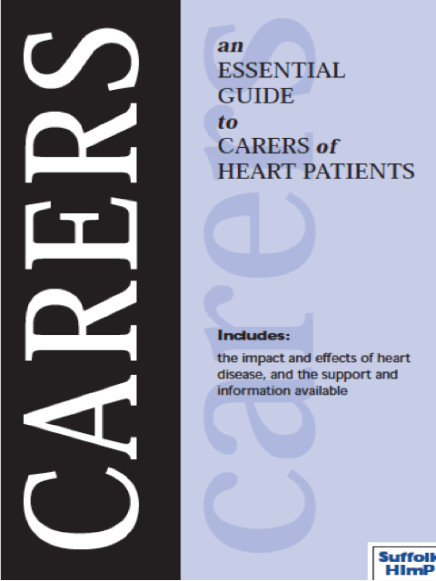

1. If your loved one has to make lifestyle changes, it can be a great help if you make the same changes yourself. This could be eating healthily with them or encouraging them to do exercise with you. This is more motivating, helps them to feel that they’re not the odd one out, and makes lifestyle changes easier to stick to. Plus, you might benefit from improvements in your own health. Physical activity can also help to lift your mood, which can be helpful for everyone at a stressful time.
2. Talk to them about how they’re feeling and how they feel they’re coping – or encourage them to talk to another relative or friend.
3. Medical appointments can be intimidating, and it’s hard to take everything in when you’re getting stressful news. Why not offer to go to their appointment with them? Even if they don’t want you to be there in the actual appointment, giving them a lift or travelling with them, and sitting with them in the waiting room can be a big comfort.
4. Sometimes it is hard to remember to take medications. It can be helpful to put a medicines reminder in your own schedule and then remind your loved one to take them, especially as they may not feel like bothering.
5. If you’re talking to a loved one about their condition, it can help if you understand the illness yourself. This could be done through attending their medical appointment with them or reading up on it independently. The BHF website has lots of information about different conditions, and we also have a wide range of free publications that you might find helpful.
6. Understand that some people have a severe psychological reaction to a heart event. Be aware that their personality may seem to change and they may appear depressed or withdrawn – although equally, some people may look for the silver lining and become determined to make the most of their lives. All these things are normal. If your loved one doesn’t seem their usual self for a while, you might want to suggest that they speak to their GP for help. You can help them accept that depression and anxiety are real health problems that deserve attention, and have tried and tested treatments.
7. Be flexible and aware of what your loved one needs. Some people may find it difficult to talk about their condition. Try to be there for them if and when they want to talk, but don’t ask too many probing questions.

Essential Guide to Carers of Heart Patients
This booklet has been compiled to help carers to understand some of the problems and behaviour that they may have to face, and endure, from the person or loved one who has suddenly suffered a heart condition, (normally a heart attack or angina). It will also assist and help the carer to come to terms with their own emotions and worries that occurs with sudden shock and of further changes that may occur.